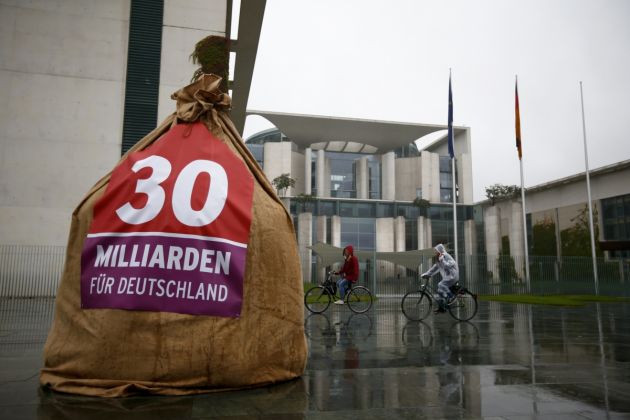European action on tax-dodging not always matching rhetoric says report

Tax-related capital flight is a major problem the world over and its negative impact is greatest on the poorest people, who are unfairly losing billions of dollars each year as a result of this practice.
Political leader in the developed nations of North America and Europe have signaled that they intend to fight tax-dodging but a churches-backed European network say much more needs to be done in Europe
European leaders from the European Council who met this week were called upon to agree further action against tax dodging by multinationals, by campaigners who issued a new report.
"While there has been significant political rhetoric in the last year on cooperation, the UK's main political focus is on ensuring the UK has the most competitive tax regime in the G20," says the report commenting on of Europe's largest economies in Britain.
The European Network on Debt and Development includes non-governmental players such as Oxfam and Save the Children as well as Britain's Christian Aid, Norwegian Church Aid and the ACT Alliance, Church of Sweden Aid, Oikos - the Ecumenical Institute for Church and Development Cooperation and World Vision (France).
The Council, which met from 19 to 20 December 2013, promised in May to crack down on tax dodging, which every year costs Europe around 1 trillion euros, and developing countries between 660 and 870 billion euros.
The European Council is an EU institution comprising the heads of government of the EU member States, along with the President of the European Commission and the President of the European Council, Herman Van Rompuy. The High Representative for Foreign Affairs, Catherine Ashton, takes part in its council meetings, and although the body does not have legislative powers it defines political directions and policy.
The new report, "Giving with one hand and taking with the other: Europe's role in tax-related capital flight from developing countries 2013," has information relating to the state of money laundering, tax avoidance and tax evasion, and the extent of government action against them, across 13 EU countries.
In the UK, the report finds that while ministers have said a lot about tax dodging and taken some welcome steps against it, the government is still resisting important reforms which would help to protect people in Britain and poor countries from financial criminals.
"Some of the policies designed to realise this goal have been criticised as undermining international cooperation. There are also concerns about the role of the UK in facilitating tax evasion, avoidance and capital flight, especially when looked at in conjunction with its associated Overseas Territories and Crown Dependencies," says the report.
At European level, the report – coordinated by the European Network on Debt and Development (Eurodad) – shows that much remains to be done.
Tove Maria Ryding, Tax Coordinator at Eurodad said, "This week, we're asking European Union leaders to take the first step by making companies reveal to the public who their owners are, where they operate and what taxes they pay."
"The second step is to ensure that multinational companies pay their fair share of tax, both in the EU and in the rest of the world," Ryding added.
She noted: "For developing countries, tax dodging is especially devastating, with more money leaving their economies than what they receive in aid.
"While European citizens donate money to combat poverty in developing countries, multinational corporations with headquarters in Europe are making large profits in those same countries but many are avoiding their taxes. Until our governments put a stop to this, Europe is giving with one hand and taking with the other".
The report found that all governments surveyed are failing to demand adequate tax transparency from companies, in that no government has implemented full country-by-country reporting.